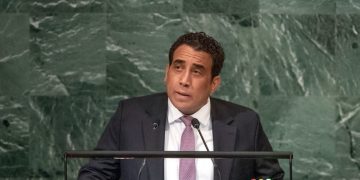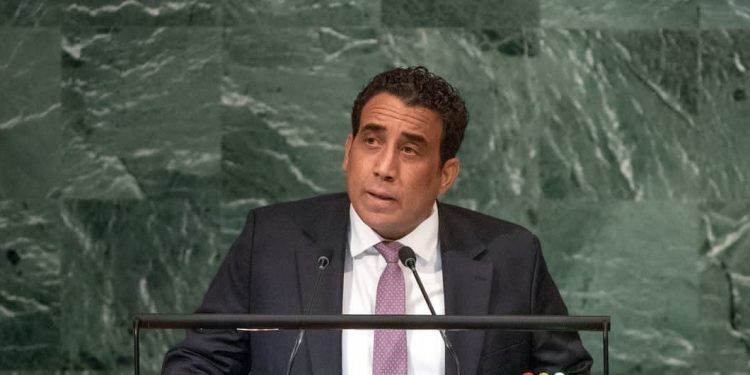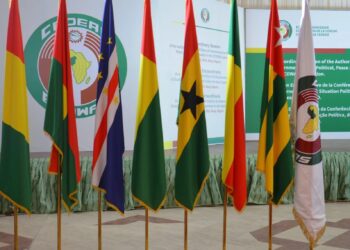By Oyintari Ben
Libyan President Muhammad Yunus Al-Manfi stated during the 77th meeting of the UN General Assembly on Tuesday that his nation has experienced a decade of “suffering and optimism” as it works to develop a State with institutions and democratic ideals.
He reaffirmed his adherence to the Libyan Political Agreement and will spearhead efforts to get ready for a peaceful and democratic transition of power through presidential and parliamentary elections as “the ultimate political authority.”
The highest ranking Libyan official expressed gratitude to the African Union (AU) for its assistance in initiating a national reconciliation initiative, which is the most crucial step toward the nation’s aim of peace and stability.
Additionally, he emphasized the importance of time constraints during discussions between the House of Representatives and the State Supreme Council, expressing his willingness to step in “to bring the political process out of its deadlock if necessary.”
Mr. Al-Manfi appreciated the UN’s presence in Libya and envisioned it playing a significant role under the new government.
Noting that it has all but undone the political gains made through the UN-sponsored Libyan discussion, he encouraged the Organization to work earnestly to support comprehensive national solutions to the current impasse.
In addition, the President called for lessening the “power of corruption” and reviving the economy.
The Libyan leader claimed that the formation of a national alternative is being hampered by proxy conflicts and divergent solutions within his nation.
According to him, negative international interventions are still laying out “contradictory solutions” that could lead to military conflict in Libya and rigid political stances that prevent efforts to bridge divides and forge alliances in the nation.
Regarding the economy, Mr. Al-Manafi argued that the Libyan Presidential Council is in favor of all initiatives to resume oil and gas production across the entire nation.
He emphasized the desire of the Libyan Presidential Council for open and equitable oil revenue management to neutralize public funds from the political turmoil and ensure that it serves all Libyans equally, regardless of politics or geography.
In addition to creating a more stable atmosphere for a democratic reform, the President expressed his hope that this may lessen the severity of the economic situation and the ongoing conflict over executive authority.




































